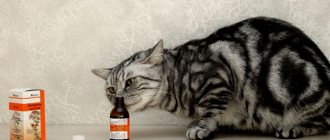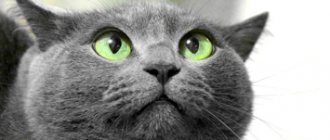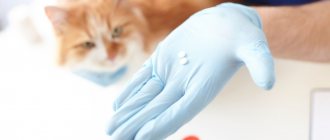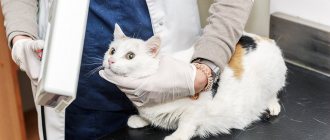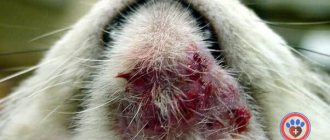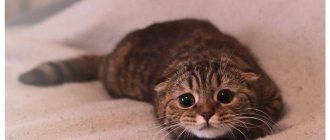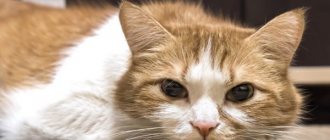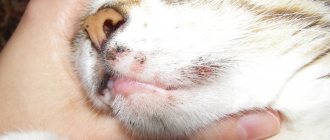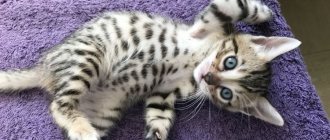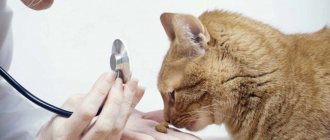Interestingly, there are exceptions to the rules. Some cats do not react at all to the smell of the medicine. But such animals are rare. The main contingent in the full sense of the word goes crazy when they smell valerian. Why is this happening?
Why cats like valerian
Scientists have not yet come to a common explanation why animals love this plant. The interest of cats is due to the composition of the extract. Most researchers believe that animals react to an organic aromatic substance - actinidin. It has a similar odor to the nepetalactone found in catnip. Therefore, representatives of the cat family show a predilection for these plants.
Another theory is that the smell of valerian is associated with 3-mercapto-3-methylbutan-1-ol, a substance found in cat markings. It is found in greater quantities in the urine of males not only of domestic animals, but also of large wild predators: lynx, puma, lion. Therefore, when they come into contact with valerian, they exhibit the same behavior as domestic animals.
Observant pet owners may notice that each cat reacts differently to the same substance. Cats react least to valerian; cats are more inclined to accept it.
Kittens have zero interest in the drug. The fact is that valerian resembles the smell of sex pheromones. They are found in the urine of an animal that is ready to mate. Therefore, castrated individuals and cubs do not show interest in valerian.
There is a genetic predisposition to sensitivity to valerian. Some animals do not react at all to a specific smell, others immediately lose their senses.
The Siamese cat breed is the most resistant to the smell of medicine.
You should not test your pet for sensitivity to valerian, as this may end badly. Individual intolerance may occur.
What happens in the furry head: why valerian is harmful to cats
Probably everyone has seen a cat that has experienced the effects of valerian at least once in their life. And those who haven’t seen it can always turn to the Internet (on YouTube the corresponding videos are extremely popular). Viewers are traditionally amused by the behavior of such an animal, which is very similar to the behavior of a person in a state of strong alcoholic or drug intoxication: cute and affectionate pets change beyond recognition, excitedly shout in bad voices, roll on the floor, sweep through rooms like a tornado, sweeping away everything in their path, trying to attack the hosts and fight with an invisible enemy. In general, they behave completely atypically and, at the very least, strange.
After going on a rampage for about half an hour, the exhausted cat falls into a state of extreme lethargy, wanders aimlessly somewhere on its naughty, spreading legs, and then falls and falls asleep.
A cat that has tried valerian behaves inappropriately, moving from exuberant euphoria to absolute lethargy
For experienced cat lovers, such behavioral reactions will certainly resemble manifestations of severe stress. After all, it is precisely in a state of stress that representatives of the cat family:
- react inadequately to external stimuli;
- behave aggressively;
- they meow and hiss heart-rendingly;
- mark territory;
- show increased anxiety.
So what happens to a cat who tries valerian? Why, instead of experiencing peace and tranquility after taking a sedative, does Fluffy become downright stressed?
Features of the cat brain
The thing is that the substances contained in valerian essential oil are strong irritants for the central nervous system of cats, and even inhaling the vapors of the drug can cause extreme excitement in the animal, bordering on frenzy.
The violence grows, and the overexcited nervous system begins to malfunction. The unfortunate animal falls into a state of altered consciousness:
- shows unmotivated aggression;
- loses control over his movements and behavior in general;
- hallucinates;
- loses the instinct of self-preservation.
But nature is wise, and after some time the cat’s body is forced to launch an inhibition mechanism that compensates for the overexcitation of the nervous system. At this stage, the animal’s reactions and physiological functions of its body (breathing, heartbeat) slow down sharply, movements become uncertain, the gaze becomes “floating”, and, in the end, the exhausted pet falls asleep.
The inhibition phase that occurs after taking valerian is characterized by a sharp slowdown and / or suspension of the main functions of the cat’s body
Such a rapid transition from hyperactivity to a state in which the basic functions of the body are suspended is difficult to tolerate even for young cats and has an extremely negative effect on their physical health. In addition, both extreme overexcitation and deep compensatory inhibition are equally destructive for the neurons of the cat’s brain. Therefore, the animal’s brain suffers twice when taking valerian, which in the future can lead to irreversible changes in the psyche.
But here’s a paradox: with all the wisdom of nature and the undoubted harm of valerian to the body of any purr, almost all cats are ready to sell their souls for the treasured bottle or package of pills.
What attracts cats
In addition to essential oils, valerian contains actinidin. This substance is similar to phoromone found in cat urine. It is this that allows you to get a short answer why cats love valerian. This opinion is shared by all modern veterinary specialists.
Contact with the plant provokes changes in the hormonal and emotional status of the pet. He begins to go crazy, a feeling of euphoria arises, similar to a state of alcoholic intoxication in a person. Duration of exposure is from 5 to 8 hours. This is followed by deep sleep, and then lethargy and apathy.
Is it harmful to treat an animal?
Knowing how valerian acts on cats, a responsible owner will not deliberately give this drug to his pet. First of all, alcohol solutions are dangerous for animals, the action of which is based
not only on the influence of specific substances included in the composition, but also alcohol.
Domestic cats very quickly become dependent on alcohol, which negatively affects their emotional behavior and health.
The intoxicating effect of cat grass is associated not only with the presence of alcohol, but also with the effect of pheromone-like substances contained in the plant on the nervous system. Therefore, it is not only the alcohol form of valerian that is dangerous, but also the tablets. In addition to the medicinal raw materials themselves, the pills contain many excipients that often lead to allergies in cats.
Understanding why cats should not have valerian, competent owners will protect their pet from contact with drugs containing it. An overdose of valerian-based medications is extremely dangerous for pets. The toxic effect leads to increased salivation, foam from the mouth, convulsions, and clouding of consciousness. Due to overexcitation of the nervous system, animals may develop a stroke and respiratory arrest.
Veterinary specialists, knowing what valerian does to cats, strongly recommend not giving your pets the plant’s preparations for fun. This could end badly. There are often cases when, after being excited, a pet falls asleep and never wakes up due to the predominance of inhibition processes in the nervous system. In addition to the development of alcohol dependence, the animal may have an increased sensitivity to plant components, and, as a result, death.
Effect of valerian for cats
The effect of valerian on animals is great. Having noticed or smelled the grass, they try to damage it, roll on it, extract liquid juice and begin to lick it. Then they go into a rage, start rolling on the ground or jumping, meowing loudly, etc.
Kittens and valerian
For your information! Valerian officinalis has a long history. Its root is used in herbal medicine, pharmacology, folk and official medicine. Translated from Latin, the word means “to be healthy, strong.” For cats, the plant is not a medicine. Rather, it causes alcohol or drug intoxication.
The plant was first used as a perfume; it is known that Cleopatra placed its petals around her love bed. Later, noticing that valerian has a sedative, calming, and anticonvulsant effect on humans, it began to be used as a medicine.
Many cases have been described of cats acting wildly if they smelled this grass nearby. However, studies have shown that valerian does not have such a strong effect on all felines. One third of them do not react at all to the herb, the remaining two thirds also vary in sensitivity to valerian. The plant affects the most emotional cats in the following way: they begin to:
- rub your muzzle or nose on a plant or bottle that emits a scent;
- tumble;
- jump;
- shake your head;
- rub against the floor;
- meow heart-rendingly;
- lick fur;
- salivate.
In severe cases, there is a lack of coordination, a hallucination develops, an inadequate reaction, etc.
Even a few drops of valerian causes aggression in animals. It seems to them that they are being attacked, persecuted, so often pets either hide in cramped, dark corners, or behave viciously. They attack the owners, tear furniture and curtains, trying to climb onto the closet or other higher places.
Note! Essentially, valerian is for cats what drugs are for humans.
The composition of valerian roots is quite diverse. It contains alkaloids, esters, tannins, resin, sugar, glucosides, etc. In addition, ethyl alcohol quickly causes alcohol intoxication and addiction. The animals' heartbeat quickens, their blood pressure rises, and after a while they become lethargic and cannot stand on their feet.
Cat alcoholism Therefore, the expression “cat alcoholism” is not an empty phrase.
Animals cannot resist alcohol. As soon as they smell valerian or take a pill, they immediately become drunk, that is, cats “get drunk.” Often, many of them fall into a deep, drunken sleep, which is typical for people. Valerian actinidin is a volatile substance that easily penetrates the animal’s olfactory organs into the circulatory system, overcomes the blood-brain barrier and affects brain receptors, causing:
- Motor excitement: cats roll on the floor, rub their faces, gnaw and scratch the object on which the valerian has fallen.
- Strong sexual arousal.
- Profuse drooling.
- Loss of coordination of movements, disorientation: the cat moves strangely, staggers, misses the bowl, hits its head and body.
- Signs of panic: hiding, flinching, hissing.
- Aggressive behavior.
- Hallucinations: a cat hunts for non-existent prey, attacks an enemy, or flees from him.
- Addiction - frequent stimulation of CNS receptors provokes addiction, like a drug. The cat begins to demand a dose of valerian, actively search for the drug, and meow loudly.
Actinidin, even in small quantities, causes overexcitation and euphoria. This state lasts 20-30 minutes, after which the central nervous system becomes depleted and the cat falls into a deep, many-hour sleep. Moreover, the male will “go crazy” longer than the female.
Some felines may exhibit an atypical reaction to the substance. It all depends on the activity of nervous processes and the excitability of the central nervous system. Certain breeds are less susceptible to the effects of valerian, such as Siamese cats.
How does valerian affect cats?
Valerian acts as a stimulant for some cats. It is impossible to say exactly what will happen if you give a cat valerian, because the herb affects each animal differently. However, in most cases, animals begin to roll on the floor, play and behave excitedly, and may even drool. The playful feeling that valerian produces provides mental stimulation and physical activity, causing cats to run, chase, and pounce on people and other animals.
Cats may behave inappropriately under the influence of valerian
Some owners note that their cats' playfulness becomes dangerous for them. Well-mannered animals that do not bite or scratch a person during games, under the influence of valerian, forget about all the rules and can cause pain to the owner.
It is important to closely monitor your pet after taking valerian. If you see signs of aggression, growling, hissing, ears rolled back, do not interact with the animal. Lock the cat in a separate room and allow it to return to normal.
The stimulating effect of valerian lasts on average from 5 to 20 minutes, after which the phase of blocking the active state begins. Valerian stops working, the animal becomes calm and even lethargic. Within 30 – 120 minutes the pet loses any interest in the substance. During this period, he wants to retire and relax.
After the end of the stimulating effect of valerian, cats calm down, become lethargic and exhausted.
Description of medicinal valerian
As long as humanity has existed, it has known about the medicinal properties of valerian. The roots of this plant, which were used by healers of ancient Greece, Rome, Egypt, India, and the Ancient East, are especially valued.
Valerian is the scientific name of the plant and is popularly called cat grass, cat root or mount grass. This is explained simply: its smell is very attractive to cats and has a special effect on them. It belongs to the family of perennial herbs and loves to grow in lowlands, near ponds, and in wetlands.
Visually it looks like this:
- Not only does it have a tall stem, which can reach 2 meters in height, but it is also very thick.
- The flowers are pinkish in color and are collected in an umbrella.
- The root system is loose, short, with many branches.
As soon as cats smell the smell of this plant, they immediately gather near it and begin to roll around in order to damage the integrity of the stem. Then they begin to lick the juice released on the surface of the stem.
Under the influence of the juice, they begin to roll on the ground even more, jump and scream loudly. Valerian has a stimulating effect on them, although people take this remedy, on the contrary, to calm them down.
Application in veterinary medicine
The effect of valerian on cats is completely different from that on people, but it is also sometimes used in veterinary medicine. In very small doses it can be prescribed for:
- Diseases of the gastrointestinal tract;
- Diseases of the nervous system;
- Diseases of the endocrine system.
Valerian acts on animals as an aphrodisiac. It affects the central nervous system and indirectly affects other organs and systems of the animal’s body. Valerian also contains substances that can affect the production of hormones in cats.
Valerian is also used as a stimulant if young cats behave too passively. Sometimes veterinarians recommend adding a little valerian to animals' food to improve appetite and digestion.
In any case, valerian is a medicine that has a strong effect on cats, which triggers a number of physiological reactions in the animal’s body. It’s not worth giving it to animals for fun, to see what happens to them. A dosage that is considered small and safe for humans may be too large and dangerous for an animal.
Interesting video: a cat’s reaction to valerian tincture
Is it possible to give an animal valerian and why is it done?
When cats begin puberty, between 7 and 12 months, there is screaming in the house day and night. Estrus is a regular process in the life of any unsterilized cat. During this period, the cat desires a male and experiences physical pain.
Euphoria in cats
Usually this period lasts 2-3 weeks, and in some cats it lasts a whole month. Veterinarians recommend calming your cat using the simplest means. For example, if there is a cat, keep it at home or invite a male for mating. But you need to take into account that she may not like her partner, and she will have to look for another cat, give them time to be with each other.
Note! Even if the first two heats pass without mating, the third and fourth times the cat will have to go through the cat, otherwise illnesses may occur. During this period, many owners give their cats valerian or its solution, keep them warm, and often pet the cats. This brings reassurance, but does not solve the problem.
We suggest you read: Why can’t you feed your cat Whiskas?
Another option is sterilization. Often such cats live 5-10 years longer than unsterilized ones. They don’t go outside, they don’t get dirty, and they have no sex drive.
As you know, valerian comes in the form of tinctures, tablets, capsules, drops, and vitamin supplements. The tincture is also dangerous because it contains alcohol, which has a detrimental effect on four-legged animals, causing them to become dependent on alcohol.
How do valerian tablets work on cats and how many pieces can you give them at one time? This question is often asked by inexperienced cat owners. It turned out that the latter are much more dangerous than the tincture. This is explained by the fact that the tablets contain only one-fourth of valerian itself, the rest are auxiliary substances that can cause severe allergies in cats.
Important! If your pet immediately falls asleep after swallowing the tablets, then it should be taken to a veterinary clinic immediately.
As soon as you drink the medicine, the cats will ask for it again and again. Even if the owner does not give his pet valerian on principle, it may accidentally fall and break. Your four-legged friend will not hesitate to rush and lick this “delicacy”, and they may experience the following symptoms:
- cats lose coordination of movement;
- the limbs do not yield to him, do not serve him;
- the cat falls on its side;
- eyes roll into the forehead;
- strong convulsions run through the body;
- copious foam flows from the mouth.
All of these signs indicate that your pet is overdosing on medication. In such cases, you cannot hesitate; you need to urgently take him to the clinic.
Undoubtedly, the harm that valerian brings to your beloved pets is considerable. However, there are also cases when veterinarians prescribe it to animals as medicine.
Valerian extract treats:
- Thyroid diseases.
- Heart diseases.
- Diseases of the nervous system.
- Diseases of the stomach and intestines.
In this case, the dose must be selected by the doctor.
Important: on the Internet you can find dubious recipes for infusions and decoctions from the root of cat grass, which they offer to give to a sick animal. Do not do this under any circumstances without first consulting your veterinarian.
What happens if you give a cat valerian? By and large, the reaction to such a plant can be unpredictable. In the best case, the purr will simply refuse to come into contact with the unpleasant aroma and move away. If your pet still shows interest in the plant, it is important to understand that valerian is dangerous for a cat.
- Addiction. Like any narcotic or alcoholic substance, valerian for cats is nothing more than an addiction. However, if a person can control his instincts, then it is much more difficult for an animal to do this. Therefore, some cats, having tried valerian for the first time, begin to behave quite aggressively and ask for a new dose. Each time the dose may increase, and the health of the purr may deteriorate significantly.
- Hallucinations. Does a cat under valerian move strangely around the house, stare into space and make shrill sounds? You may think that this condition is similar to alcohol intoxication. However, in some cases this is not the case at all. The fact is that many cats under valerian begin to experience various kinds of hallucinations. And what seems funny to you may be something terrible for your cat.
- Overdose. In the wrong doses, even medicine can become a deadly poison. And in the case of a cat, only a veterinarian can calculate what dose of valerian will be safe. Therefore, carefully ensure that the plant extract (both in tablets and tincture form) is securely closed from your pet’s sight. An overdose of valerian in cats is a dangerous phenomenon that not every veterinarian can prevent. In such situations, your pet may experience convulsions, foam at the mouth, and rapid breathing. In extreme cases, the cat may have a stroke.
- Presence of alcohol. Some owners give their cat a tincture of valerian in alcohol for a laugh. However, pets’ bodies are not designed to drink alcohol. In this case, the liver, stomach and cardiovascular system are destroyed. In addition, alcohol can cause addiction and strange behavior in your purr over time.
Veterinarians practically do not use valerian-based medications in the treatment of cats. There are other drugs that do not have a narcotic effect. You cannot give alcohol tincture to animals, because... it contains ethyl alcohol.
Cats do not have enzymes to utilize it. Therefore, the tincture is too toxic for them and can cause severe poisoning even in small quantities.
Herbal preparations are also prescribed to animals with decreased physical activity and loss of appetite as a tonic medicine. In zoos, valerian grass is laid out in the enclosures of predatory cats in thick canvas bags. They have a moderate stimulating effect and eliminate stereotypical behavior.
But the amount of the drug is determined by a specialist depending on the condition of the animal, body weight, and age. An overdose will cause great harm to the pet’s body, including death.
The aroma of valerian can have the opposite effect on a cat in heat - she will become even more aroused by smelling the male. If you still manage to create the illusion of a cat’s presence by letting the cat smell valerian, the effect will be short-lived and will not solve the problem. It is better to use special veterinary drugs.
This is also true for males. It is impossible to keep a lustful male from trying to break out into the street with the help of the smell of valerian. It is impossible to predict his behavior under the influence of a drug, but it is possible to provoke the development of drug addiction.
Some sources indicate that you can give the animal a little valerian. But before the cat falls peacefully asleep for several hours, the owner will have to wait out the hyperactivity phase.
We invite you to read: What kind of future do cats promise us?
Valerian officinalis contains strong bioactive substances and can be dangerous even to humans. The effect of this drug on the feline body has not been studied, but external manifestations indicate a harmful effect on the nervous system, hormonal levels, and psycho-emotional reactions.
It is difficult to independently calculate the safe dose of the active substance both in pharmaceuticals and natural raw materials. Therefore, there is a high risk of drug overdose.
Veterinarians rarely prescribe valerian as a medicine, because... There are a large number of proven and safe drugs. Medicines based on Schisandra chinensis are used as a tonic.
Veterinary medications have a mild sedative effect, and even with frequent use, there will be no harm to the state of the pet’s nervous system.
Actinidin is the answer to the question why cats love valerian. This chemical component of the medicinal plant has an odor similar to the aroma of the pheromone felinin, which is part of cat urine. In the urine of males there is 4 times more of this substance than in females, so they react to the smell of valerian quite sharply.
The smell of pheromone is sharp and persistent. It is he who helps cats mark their territory so that their other relatives understand it. The aroma causes excitement in animals, which they usually experience during the heat period.
The smell of grass irritates the central nervous system of animals, causing a surge in hormones in the blood. This leads to a change in the behavior of the animal. The cat goes crazy and may start rolling on the floor, meowing loudly, or running around the room. Valerian affects pets in different ways. Some cats fall into euphoria and show joy in every possible way.
In all animals this condition lasts for a short period of time. Then they calm down and fall asleep. Sound sleep after intoxication with valerian in cats can last several hours.
In the wild, felines sometimes chew the stems and roots of medicinal herbs if they feel unwell. The plant has an analgesic effect, which is why it is believed that sometimes an animal is attracted by the smell, which promises to relieve the pain that is bothering it.
Harm and benefit
It was previously mentioned that some animals fall asleep from overexcitation. And all because a strong effect on neurotransmitters causes an imbalance in the nervous system. Because of this, irreversible consequences often occur in the cat’s cerebral cortex. At best, this will manifest itself as some kind of inhibition. At worst, the animal simply cannot cope with such a blow to the nervous system.
Sometimes toxic poisoning develops. It is easy to determine the symptoms of this phenomenon by the appearance of the cat. This is increased salivation and even the appearance of foam. In clinical cases, convulsions begin and the animal loses consciousness. Toxic poisoning leads to respiratory arrest and stroke.
Due to inhibition processes in the cerebral cortex, the cat may no longer wake up. Well, if alcohol dependence manifests itself and with frequent use of valerian, the animal may develop increased sensitivity to the components of the drug. An overdose can result in death from an allergy attack.
Therefore, veterinarians are unanimous in their opinion that giving a cat valerian for fun is harmful and not necessary. The animal suffers from the harmful effects of alcohol and pheromone, since this is necessarily followed by hormonal imbalance and emotional stress.
But, speaking of absolute harm, doctors note the need to use valerian in special cases:
- Gastrointestinal diseases;
- Problems with the animal's nervous system;
- Endocrine system disorders.
Pheromones affect the central nervous system. But other organs are also affected, only very indirectly.
Most often, valerian is prescribed to cats of a passive type of behavior. Then the medicine acts as a stimulant, and can also be a kind of appetite stimulant and a means of improving digestion.
The dosage is prescribed exclusively by a veterinarian and is also taken under his supervision. You should never use a potent drug for fun.
Is valerian harmful for cats?
In some cases, you can give your cat valerian, but if you exceed the dose, you risk simply not having time to contact a veterinarian.
Valerian for cats can become a drug, the same as nicotine for humans. And there is an explanation for this. Members of the cat family may become addicted to some plants after just one use. Among them is valerian. and cats are influenced by it.
In addition to the herbal valerian officinalis, valerian tincture contains 70% ethyl alcohol. Since valerian has a stimulating effect on cats, the dependence caused by the alcohol contained in the extract aggravates its destructive effect on the animal’s body.
Observations have shown that not every cat is blown away by the aromatic drug and not all of them develop dangerous symptoms after consuming it.
Advantages and disadvantages
Before deciding to use valerian for cats, you need to weigh all the pros and cons of such treatment. Why is this done and is there an alternative? Therefore, if the veterinarian’s verdict on the prescription of such a remedy raises concerns, you should consult with other specialists.
Disadvantages of use:
- valerian is addictive and is a narcotic for cats;
- overdose causes seizures and heart attack. There is a high probability of death;
- a slight increase in the permissible limit can lead to coma;
- After consumption, the animal may experience panic that lasts for several days.
At the same time, valerian does not have a narcotic effect on kittens up to six months. As entertainment, it is permissible to give your animal toys soaked in valerian extract; they will not cause any harm. But giving the root of the plant to domestic cats without a doctor’s testimony is strictly prohibited.
Advantages of use:
- relieves gastrointestinal spasms;
- treats thyroid diseases;
- is an adjuvant in the treatment of cardiovascular and nervous diseases;
- Tinctures of the plant are effective for washing the eyes in the treatment of purulent infections.
How to influence behavior
In some cases, valerian extract is deliberately used to correct the cat's behavior. If your pet goes to the toilet in any place, except in a special tray, it can be weaned from pooping anywhere. You need to sprinkle your favorite areas with a small amount of valerian. The pungent smell will discourage the animal from going to the toilet in prohibited places.
It can also be used as a sedative before the upcoming transportation of the pet. You just need to use not a tincture, but tablets (no more than 1 piece).
ATTENTION! In any case, you should not get carried away with valerian without the approval of a specialist. Otherwise, you may get unwanted side effects.
Why don't all cats get euphoric?
According to research, 30% of cats do not react to the smell of valerian. An autosomal gene causes an addiction to the plant. Meanwhile, the action of this gene causes a lack of reaction to valerian.
Note! Kittens no more than six weeks old also do not become euphoric from this substance. The fact is that they lack sexual desire, which is stimulated by pheromones, since the hormonal system has not yet formed.
Basically, valerian has a dangerous effect on males, and in cats the smell of pheromones is associated with a rival, with a female smell.
It is known that Siamese cats and British cats practically do not react to the drug. And in some cats it causes fear and disgust. Animals want to go away, to hide in a corner. This mainly depends on the nervous state of the animal.
It’s not just cute, but it’s good because it’s nice: why cats are drawn to valerian
Although scientists know a lot about cats and almost everything about valerian, they still have not been able to fully understand the nature of the plant’s magical attraction for these animals. Therefore, there are three main theories that try to explain the unhealthy passion of our furry pets for drugs that are undoubtedly harmful to them.
Theory one - “Freudian”
Proponents of this theory believe that the substance actinidin contained in valerian smells like the pheromones released by a cat during estrus. And, since the instinct of procreation is one of the fundamental ones, a cat that smells a familiar aroma instantly becomes very excited.
The following speaks in favor of the theory:
- Kittens of both sexes do not pay any attention to the smell of valerian until puberty.
- Only about 30% of cats react to the smell of the plant, while in cats this percentage is 65–70 (it is generally accepted that the cat in this case goes berserk from the smell of a potential rival).
Theory two - “narcotic”
This theory states that the substance nepetalactone, similar in composition to actinidin and also contained in valerian, is a natural hallucinogen for cats that causes persistent addiction in animals (akin to drug addiction in humans). Moreover, the formation of such dependence in fluffies has been scientifically proven. But supporters of the “drug” theory cannot explain why it does not “work” on kittens. And the fact that cats become victims of addiction much less often than males does not really fit into the picture either.
Theory three - “genetic”
This theory is based on at least two facts:
- There is a 90% chance that older kittens of a “valerian-dependent” cat will also be dependent.
- Not all cats suffer from a craving for valerian. Moreover, there are even breeds that are relatively resistant to its effects (for example, Siamese cats: 70% of representatives of this breed are characterized by absolute indifference to the spicy aroma of the plant).
Proponents of the “genetic” theory believe that all this is directly related to a special gene responsible for the sensitivity of an individual to nepetalactone. Accordingly, only carriers of such a gene will initially find valerian attractive. As for the situation with kittens, their genetic inheritance is fully manifested after reaching six weeks of age. That is why cat babies do not react in any way to the plant and preparations containing it.
Whichever of the listed theories seems most convincing to you, one thing is certain: valerian is harmful to our pets. However... Is it always?
How to please your pet without endangering health
Catnip has a similar effect on cats. This is a herbaceous plant that contains aromatic essential oils, as well as the substance nepetaloctone. It is this component that acts on cats as a powerful pathogen. Even the most sedentary couch potato turns into a perky and jumping ball of energy.
Moreover, the effect occurs without direct use, as with valerian. It is enough for a cat to catch a subtle aroma to feel extreme excitement. Among the reactions: meowing, purring, and even growling. Sometimes hyperactivity appears. The pet begins to run and jump. Rarely, but attacks of aggression do occur.
The mild effect of catnip is due to its short-lasting effect – about 10 minutes. After this period, the animal completely returns to its normal state. And the smell of the plant will begin to bother him no earlier than after 2 hours. Therefore, there cannot be an overdose, as such, in the case of mint.
Scientists studying such reactions suggest that the plant’s effect is based on imitation of the “happiness hormone.” This stimulates the brain receptors, and the cat at this moment feels euphoria and unprecedented energy.
But if your pet decides to eat deliciously smelling mint, you will get the exact opposite effect. He will fall asleep sweetly, or become quiet and calm, since when it enters the body the plant has a sedative effect.
Interesting!
The reaction to catnip is determined by the presence of a specific gene. Thus, cats that do not respond to this plant will produce equally unresponsive offspring.
Pampering your pet with mint is possible, and sometimes even useful. But it is worth considering that essential oils fade over time. When keeping such a pathogen at home, it should be stored in an airtight container.
Valerian alternative
A popular alternative to valerian is catnip or catnip, a perennial herbaceous plant. Used as a spice, in the manufacture of perfumes, and in folk medicine. Has behavioral effects on the feline family, not only domestic cats, but also other species.
Catnip is one of the alternatives to valerian
Catnip has a similar effect to valerian: the animal rolls on the floor, jumps, purrs. Some cats may growl, scratch and bite.
Pet stores offer products and toys with the addition of catnip, as well as dried catnip grass, which can be used for games and training, as bait for scratching posts, for house training purposes, etc. The Peppermint Ball, made with beeswax and catnip, is a great toy that you will never get tired of. With each paw strike, the mint smell becomes more intense. A catnip ball is a great, safe option to stimulate cats that lead a sedentary lifestyle.
Peppermint ball - an edible toy made from natural ingredients
An active reaction to catnip is due to the genetic predisposition of cats. About a third of animals do not experience the stimulating effects of mint. Other plants that have effects on cats besides valerian and catnip are silver vine (Actinidia polygama) or matatabi, popular in Asia, and Tartary honeysuckle (Lonicera tatarica).
If you want to know what will happen to an animal if you give it valerian tincture, watch this video. But under no circumstances repeat this with your pet!
Cats after valerian: changes in behavior
If the gene does not mutate in a cat’s body, then the smell of valerian causes euphoria in him and affects the nervous system of males, as it is similar to the smell of pheromones in the urine of females. A strong sexual instinct awakens in the males, and the cats begin to hunt.
Changes in behavior in cats
Typically, the symptoms of a cat under the influence of drugs or alcohol are as follows:
- they purr loudly;
- rubbing their head on the floor and other objects;
- meow loudly;
- running around the house.
Then comes the relaxation phase:
- cats become uninitiative;
- huddle in a corner, hide under the bed;
- falls asleep quickly.
In this state, animals should get as much sleep as necessary. You shouldn’t wake them up, and they won’t wake up voluntarily. The next day, the pet will forget about the drink and will again become a cute kitten. This is what happens if you give a cat valerian.
Everyone knows that a cat and valerian are incompatible concepts; it acts on pets like alcohol or a drug. Zoologists say that valerian and a cat are the same as cocaine and a person. Scientists say that the animal will experience a state of euphoria, hallucinations, and a lack of coordination.
Sometimes pets are unable to stay on their feet, sway in different directions, do not fit into the doorway, roll on the floor, they either attack an invisible target or flee from a non-existent enemy. During all these actions, they scream loudly and do not get their bowl - naturally, valerian is harmful to their health.
If you periodically allow the use of valerian, which is harmful to the cat, then you can subsequently end up with a degraded animal, with completely forgotten skills, with ignorance of its bowl, tray and even owner. His hair will begin to fall out, baldness will begin, and signs of depression will appear.
If the pet, after strong excitement and euphoria, sleeps soundly, then it is necessary to urgently take it to the clinic.
We invite you to read: Endometritis in cats - symptoms, diagnosis, treatment. Purulent, postpartum endometritis in cats
Body reaction
Each cat has its own temperament and character, so the reaction to valerian vapor will be different. However, there is a similar behavior in animals to the smell of grass:
- Indifference . The effect of the medicinal plant affects the cat’s psyche. For the nervous system to recover, rest is required. After vigorous active activity, the animal either sleeps or begins to become apathetic towards everything. Excessive use of valerian can lead to serious mental changes. However, sleep is not the result of a calming effect, but a sign of exhaustion of the cat’s body.
- Aggression . Strange behavior occurs immediately after inhaling valerian essential oils. They start screaming, jumping on furniture, rolling on their backs and running non-stop around the apartment. There is an assumption that hallucinations appear.
For example, a cat begins to fight with an invisible opponent. Some cats lose coordination. They cannot stand, walk through a doorway, or approach a food bowl. They can lunge at people and scratch themselves. An inadequate reaction lasts no more than 20 minutes.
Such disruptions in mood cause enormous harm to the animal’s hormonal system and emotional stability. Why does a fragrant product have such an effect on cats? There are several assumptions:
- Narcotic effect. The effect of valerian on cats is similar to the effect of narcotic drugs on the human body. If an animal is allowed to constantly inhale the smell of a plant, it will quickly become addicted. He will be in search of a fragrant liquid and, not finding it, become aggressive.
- Awakening of sexual desire. The smell of essential oil acts as pheromones, so a violent reaction begins. Males are ready to mate, searching for a female nearby.
- Therapeutic effect. The root of the herb has healing properties. It relieves pain and cramps in the animal's stomach. Therefore, cats instinctively begin to reach for valerian as soon as they smell it.
Features of the impact
Those who have pampered their furry friend with valerian at least once may have noticed an unusual reaction. And although it manifests itself differently in everyone, we can conditionally divide the behavioral characteristics of animals into characteristic groups:
- Indifference . In fact, the stereotype that all cats go crazy because of the smell of medicine does not entirely reflect reality. Scientists have found that a violent reaction occurs in only 70% of animals. The remaining 30% do not pay any attention to the “magic drops”. This third of the total often includes kittens under 12 months of age and neutered animals.
- Euphoria . This is exactly the word that can describe the state of a purr, licked with valerian. The cat's behavior resembles that of a person under the influence of alcohol. The animal may stagger or lie, looking at one point with glassy eyes. Later, the cat falls into a sound sleep. And after waking up, he will return to the place where he was given the medicine and will try to find it again.
- Wild insanity. It is rare, but it happens that an animal rushes around the house, tears up wallpaper and climbs up curtains in a frenzied fit. The loud yelling that accompanies all this madness naturally frightens the owners. This is practically a cat's delirium tremens, which deals a big blow to his nervous system.
- Apathy and relaxation . Some cats fall asleep immediately after trying valerian. Although, in fact, this behavior is not due to this particular substance, but to the alcohol contained in liquid formulations. More often than not, cats wait until it wears off, but it happens that they still lick off a small dose. It is alcohol that causes the animal to become addicted to the medicinal tincture.
- Hallucination . In exceptional cases, the cat begins to feel that someone is threatening its health. Therefore, they can fight an invisible enemy, hiss and rush into the void. In addition, people and objects in the house are perceived by them as unfamiliar.
Read:
Why do bedbugs appear in an apartment: folk signs
Does valerian help during estrus?
Valerian does not calm cats, but excites them. The long sleep that follows is only the result of a natural change in the processes of excitation and inhibition in the central nervous system. Deep sleep is the cat’s body’s reaction to stress and depletion of internal resources caused by the effects of the drug.
If you give a cat valerian to calm it down, in the first half hour its reaction will be the opposite of the desired one - the animal will first “go crazy”, and only then calm down and fall asleep.
If you need to calm your cat down or euthanize him before a long journey, you can buy special products at a veterinary pharmacy. There are many herbal preparations for animals that are practically safe for them. Some remedies also add very small doses of valerian, which in combination with other medicinal substances can contribute to a sedative effect.
It is not recommended to give an animal any drug before vaccination to calm it down without a veterinarian's prescription. Medicinal components may interact, which can be dangerous to the cat’s health.
Sometimes, with the help of valerian, owners try to calm a cat during heat. As already mentioned, it does not have a sedative effect on animals, however, even in these cases it is sometimes effective. Since the aroma of valerian rhizomes resembles the smell of a substance contained in the urine of cats and is perceived by them as a pheromone, the cat can calm down a little thanks to the illusion that there is a cat nearby.
You can only give the cat a sniff of the dry rhizome or its decoction. You should not give your cat valerian. In this case, it will only have an exciting effect. When letting your pet smell the drug, you also need to take into account that it may not calm her down. Some cats, on the contrary, may become even more excited and begin to meow incessantly, calling for the cat. It is best to replace valerian with special sedatives for cats.
Since valerian does not have any long-term effect, it cannot be used to keep an animal at home.
As for cats, trying to wean them from hanging out with the help of valerian is practically useless. If you drop a couple of drops of tincture somewhere, the animal will most likely sniff the object and stay near it for a long time. The very next day, without such a stimulus, the cat may run away again. You can’t give him valerian all the time, as the cat can get used to it and then constantly ask for it. It can also have a bad effect on his well-being and behavior.
The aroma of valerian can have the opposite effect on a cat in heat - she will become even more aroused by smelling the male. If you still manage to create the illusion of a cat’s presence by letting the cat smell valerian, the effect will be short-lived and will not solve the problem. It is better to use special veterinary drugs.
This is also true for males. It is impossible to keep a lustful male from trying to break out into the street with the help of the smell of valerian. It is impossible to predict his behavior under the influence of a drug, but it is possible to provoke the development of drug addiction.
We invite you to read: Detailed description and characteristics of the American Toy Fox Terrier breed
When cats begin puberty, between 7 and 12 months, there is screaming in the house day and night. Estrus is a regular process in the life of any unsterilized cat. During this period, the cat desires a male and experiences physical pain.
Euphoria in cats
Usually this period lasts 2-3 weeks, and in some cats it lasts a whole month. Veterinarians recommend calming your cat using the simplest means. For example, if there is a cat, keep it at home or invite a male for mating. But you need to take into account that she may not like her partner, and she will have to look for another cat, give them time to be with each other.
Note! Even if the first two heats pass without mating, the third and fourth times the cat will have to go through the cat, otherwise illnesses may occur. During this period, many owners give their cats valerian or its solution, keep them warm, and often pet the cats. This brings reassurance, but does not solve the problem.
Another option is sterilization. Often such cats live 5-10 years longer than unsterilized ones. They don’t go outside, they don’t get dirty, and they have no sex drive.
Which is better: drops or tablets
Some cat owners think that they can give valerian in solid form and it will not be harmful to the animal. However, this is not true, the tablets are no less dangerous for cats to consume, because they contain no more than 2% valerian, everything else is auxiliary substances that can cause a severe allergic reaction.
The medicine is available in 2 dosage forms: in the form of an alcohol tincture and film-coated tablets. Valerian in both forms is harmful to pets. The drops contain at least 65% ethyl alcohol, and the tablets consist of 75% synthetic fillers.
Valerian tablets are much more dangerous compared to drops.
The fact is that one tablet contains only a quarter of this drug, and the rest of the contents are synthetic excipients that can cause a severe allergic reaction.
If an inexperienced owner gave the cat one tablet, after which the animal fell into a sound sleep, it is necessary to urgently take him to the veterinarian.
It is these factors that explain the negative attitude of veterinarians to such jokes from owners of furry pets. So, is valerian harmful for cats? Too much infusion can even kill the unfortunate animal, plunging it into a state of sleep from which there is no awakening!
What is the danger
Cat owners should be careful when using valerian tincture. It can seriously harm the animal. Dependence on a specific aroma can cause the following deviations:
- allergies;
- pathologies of internal organs and gastrointestinal tract;
- neurosis and psychological dependence.
It has been precisely proven that valerian should not be given to pregnant cats and animals diagnosed with kidney and liver diseases. The greatest danger is tincture of aromatic herbs. Cats cannot tolerate alcohol. In the tincture its content reaches 70%.
IMPORTANT! The cat's body cannot process alcohol. Even a small portion of ethanol causes damage to the kidneys and liver, intoxication of the body, even death.
An overdose can be fatal. If a cat finds 2 or more tablets, it can kill him. In addition to grass, the drug contains synthetic substances that lead to poisoning and death of the animal.
Symptoms of drug overdose:
- breathing problems;
- problems with movement coordination;
- seizures and convulsions;
- profuse salivation.
If such symptoms are observed, urgent help is needed.
Is it possible to give herbal medications?
Since valerian causes drug addiction in cats, it should not be given to animals without a doctor’s permission. If you want to please your pet, you can buy catnip. This grass is often stuffed into the insides of cat toys. You can also buy some dried mint and make a toy for your pet yourself. Such substitutes have a gentler effect on the nervous system of cats. After 15 min. the animals will forget about her.
To avoid trouble, every owner of felines should be aware of the effect of this medicine on four-legged animals. It can be given with the permission of a veterinarian without exceeding the dosage. Otherwise, serious health problems for cats will arise, which can lead to the death of the animals.
Is it possible to calm a cat with valerian?
Symptoms of an overdose of valerian in cats are:
- Impaired coordination of movements, when the cat cannot walk straight, but staggers from side to side;
- Convulsions;
- Discharge of saliva and foam from the mouth;
- Vomit;
- Loss of consciousness,
- Apathy and falling asleep 5-10 minutes after taking the drug.
Loss of motor coordination in cats, when they stagger, fall and move sideways, may seem funny. Not knowing that this condition is very difficult for the animal and is the result of an overdose of the drug, sometimes owners pour valerian into the cat’s mouth to supposedly entertain it.
A typical example of animal abuse.
If any symptoms of an overdose of valerian appear, the cat should be urgently taken to a veterinary clinic to receive help. The most dangerous symptom is an unexpected dream. If a cat falls asleep literally immediately after taking valerian, there is a risk that it may die.
The effect of valerian in small doses on a cat is also not beneficial. The drug causes a sharp and strong excitation of the central nervous system, which is replaced by inhibition processes. Since the stimuli are very strong and such vibrations are not natural for the animal, it can destroy neurons in the brain.
It is also believed that valerian can cause visual hallucinations in cats. Although there is no scientific evidence for this, according to experts, it is precisely their consequence that cats behave wildly, when they begin to hiss and rush at something in an empty space.
Sometimes cats, once they try valerian, begin to look for it and beg for it, constantly meowing. It is believed that the plant can be highly addictive, and it is then very difficult to wean a cat off valerian. If such a problem arises, only a veterinarian can help solve it. Of course, not all cats get used to it. Some animals can safely tolerate one dose of the drug, while it can cause serious harm to the health of others.
Euphoria in cats
Since valerian causes drug addiction in cats, it should not be given to animals without a doctor's permission. If you want to please your pet, you can buy catnip. This grass is often stuffed into the insides of cat toys. You can also buy some dried mint and make a toy for your pet yourself. Such substitutes have a gentler effect on the nervous system of cats. After 15 min. the animals will forget about her.
To avoid trouble, every owner of felines should be aware of the effect of this medicine on four-legged animals. It can be given with the permission of a veterinarian without exceeding the dosage. Otherwise, serious health problems for cats will arise, which can lead to the death of the animals.
In tablets
There may be times when your cat needs to be taken to the veterinarian, but the thought of traveling halfway across town with an angry animal in your bag makes you nervous. Valerian (only in tablets) can do a good job here too. Take a couple of tablets yourself and treat one or two to your pet. After he's had a blast, he'll calm down and fall asleep for a long time, and you'll be able to take him for a routine check-up without incident.
The harm from tablets is not as great as from tincture, so you can use this remedy once or twice a year without remorse.
If you want to cheer up a sad pet or relieve stress after an unpleasant visit to the doctor, it is better to use a product that is safe for animals - catnip. This plant is not addictive; no negative side effects have ever been observed when taking it. And, most importantly, it is completely harmless to your pet’s body.
Catnip is available both fresh and dried. You can buy a toy for your pet that is soaked in the extract of this plant. There will be no limit to joy!
The dangers of valerian preparations for cats
Under no circumstances should you give your animal human medications. They may contain other additives, including synthetic ones, that are harmful to furry animals and may be too strong for the cat's body. We are talking about valerian in tablets. This form of medication contains additional substances that can cause allergies in the pet.
An alcohol tincture of valerian root is no less dangerous for a cat if the animal decides to lap it. Alcohol in any dose is poison for the cat’s body. Ethanol begins to act almost instantly after it enters the body. Ethanol poisoning occurs. Like in humans, it manifests itself as intestinal disorders, nausea, vomiting, drowsiness, impaired coordination of movement, and loss of consciousness.
How do cats react to an overdose?
There have been cases of death in cats due to an overdose of valerian pharmaceutical preparations. Once an animal eats 2-3 tablets or chews a large root of a plant, only emergency veterinary help can save it from death.
Pet owners do not always realize the consequences of their actions. They often find the cat's reaction to valerian amusing and therefore regularly give it to the pet.
Uncontrolled access to the drug leads to overdose. The animal becomes seriously intoxicated and requires treatment from a veterinarian. Do not delay contacting a doctor, as your pet’s life is at risk.
Symptoms of overdose include loss of coordination, foaming at the mouth, seizures, and rolling of the eyes. In the absence of qualified assistance, the animal will die from poisoning.
Not only valerian tincture is dangerous, but also pills. They contain only one part of valerian, the rest are synthetic substances. Even one tablet can cause an allergic reaction.
In severe cases, the animal falls asleep. In this case, urgent assistance from a veterinarian is required.
Tinctures contain alcohol, which also negatively affects the body and causes poisoning. As a result, it leads to liver problems. Characteristic symptoms include slow breathing, vomiting, weight loss and frequent urination. If these signs occur, you should immediately take the animal to the veterinarian.
Weight loss
- lack of coordination;
- numbness of the limbs;
- eye rolling;
- convulsions;
- foaming from the mouth;
- loss of consciousness.
If such symptoms appear, it is necessary to urgently take the animal to a veterinary clinic. Valerian poisoning can be fatal and requires complex resuscitation measures.
There is an opinion that valerian in tablets does not have such a harmful effect on animals. Sometimes owners, without much fear, treat their pets with odorous pills only because they smelled the smell and began to insistently ask.
In fact, in tablet form the drug has no less powerful effects. In addition, it contains auxiliary components that can cause allergies in the animal. If you need to calm your pet, it is better to offer him a special cat sedative. It is also advisable to consult a veterinarian before doing this.
There are cases when a cat independently reached valerian by eating a whole package of tablets or drinking a bottle of alcohol tincture. As a result, an overdose of the drug occurs, which requires immediate intervention by a veterinarian.
In this case, the animal's life is at risk.
Signs of overdose:
- white foam comes from the mouth;
- convulsions in a cat;
- the cat fell on its side;
- eyes roll.
Therefore, the use of valerian is justified only as directed and under the supervision of a veterinarian, since each animal tolerates this medicine differently. So, protect the health of your furry pet from stupid experiments. After all, short-term fun can end very tragically - even death.
As soon as your pet gets to the package of tablets or tincture, he, without knowing the measures, will destroy it all in an instant. In this case, an overdose of the drug occurs, and this cannot be done without the intervention of a veterinarian, otherwise the animal’s life will be at risk.
Signs of an overdose include the following:
- the cat constantly falls on its side;
- she is seized by convulsions;
- white foam coming from the mouth;
- eyes roll involuntarily.
Can cats have valerian?
Owners often wonder whether it is possible to give cats valerian tablets. Veterinarians are categorically against such experiments. They claim that giving valerian to cats is not only harmful, but also dangerous to their health. This is especially true for the drug in tablets.
Two-thirds of the valerian tablet consists of excipients that are of synthetic origin and cause severe allergic reactions in pets. What should you do if your cat ate a pill that accidentally fell on the floor?
From such a small dose, most likely, nothing terrible will happen. While the remedy is in effect, the animal will purr, roll on the floor, and then fall asleep. However, it can be addictive, so you need to be extremely careful.
Both in tablet and liquid form, this drug, which cats are simply obsessed with, is equally harmful to them. It can cause particular harm to an unformed body, therefore it is strictly contraindicated for kittens and dangerous for a pregnant cat.
Overdose symptoms
Can a cat die from valerian after consuming a large amount of the medicine? Current veterinarians answer this question unequivocally in the affirmative. Here you need to take into account the dosage.
Since each organism is individual, and susceptibility to this drug is determined genetically, experts cannot yet say how much a cat needs to take this medicine for death to occur. Therefore, at home it is necessary to protect your pet from contact with valerian tincture.
It is impossible to predict the reaction of a particular animal if you feed or drink it with an aromatic mixture. Some incompetent owners try to give the cat valerian to calm him down and do not expect that the opposite situation may occur. The pet will fall into a state of euphoria, behave inappropriately and stop responding to any influences.
The greatest threat to the life of furry pets is an overdose of the drug, which overloads the nervous system and leads to seizures. Signs of overdose are:
- white foam at the mouth;
- the animal lies on its side and its eyes roll back.
If your cat has eaten valerian and at least one of these symptoms is observed, do not hesitate to contact a veterinarian!
In tincture
According to some scientists, cats are attracted to the 70% alcohol contained in valerian tincture. Drinking alcohol is unlikely to bring any benefit to the animal, but it causes great harm: even a single dose of alcohol can cause severe dependence, comparable to a drug addiction. Once you try valerian tincture, your pet will ask for it again and again or try to get the coveted bottle on his own.
It also happens: the bottle fell out of your hands and broke, or the tincture accidentally spilled on the floor. Your cat is right there, licking all 50 ml clean, before you even have time to gasp. Following this, the following may occur:
- The animal will stop coordinating its movements;
- His limbs refuse to serve him;
- He falls sideways;
- The eyes roll under the forehead;
- Strong convulsions run through the body;
- Copious foam flows from the partly open mouth.
These ominous symptoms are signs of an overdose. Don't wait for your pet's condition to change for the better: immediately put him in a carrier and take him to the veterinary clinic as soon as possible, otherwise you risk losing him.
However, in some cases, this drug can become your reliable assistant: for example, when an animal needs to be toilet trained.
We suggest you read: Injuries of the spine and spinal cord in dogs and cats: choice of treatment method
Sometimes owners fail to teach an already quite adult pet to use the litter box. He can do his business anywhere, just not where he is supposed to. In this case, valerian can help.
Wash the floor thoroughly using special preparations that eliminate the smell of cat urine and excrement, then lightly sprinkle it with valerian drops. The intense aroma of the medicine will prevent the animal from using the floor for other purposes.
What to do if your cat has eaten valerian?
The negative impact of the herb on the animal can be neutralized by giving it kefir.
The main thing is not to panic. Nothing serious will happen if the animal eats a little. Typically, the effect of the tincture is short-term, lasting from 10 to 30 minutes. If the owner sees that the animal has become really ill under valerian or the effect of the plant does not let go for a long time, then it is necessary to begin rescue measures, first of all, to solder the animal. To remove toxins from the body faster, you need to give the animal kefir or milk to drink. When he feels better, the pet should be fed. If the condition begins to worsen or he does not eat or drink, you need to contact a veterinarian.
Valerian has an extremely negative effect on cats, so you should not leave drops in an accessible place. Often, one dose of the drug is enough to cause addiction. The harm it causes to an animal when it licks or sniffs the composition cannot be underestimated. Once you try the tincture, the cat will tag along and beg for more.
